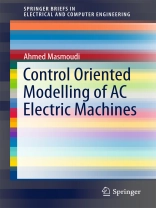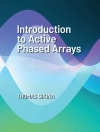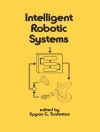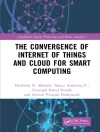The book discusses the modeling of induction and synchronous machines aimed at the synthesis of dedicated control strategies.
The first part focuses on induction machines (IMs), and starts with the analysis of the principle of operation, which is based on the induction phenomenon. It then establishes the a-b-c model, assuming a sinusoidal spatial repartition of the air gap flux density, a linear magnetic circuit, and constant phase resistors. The a-b-c model enables the establishment of a state representation of the induction machine. Then, the Park transformation is introduced and applied to the IM a-b-c model, leading to its Park one, which is then used to analyze the IM steady-state operation. The chapter also includes a case study dealing with the doubly fed induction machine, which is widely integrated in wind power generating systems.
Following the introduction of the continuous development of synchronous machines (SMs), the second part establishes the a-b-c modelfor salient pole machines. Then, the Park transformation is applied to the established a-b-c model, leading to the Park one. The section highlights the formulation and analysis of the electromagnetic torque, with its synchronizing and reluctant components investigated in terms of the torque angle. Subsequently, it characterizes the operation at (i) maximum torque and (ii) unity power factor before focusing on the flux weakening approaches that could be implemented in SMs considering both smooth and salient pole topologies. Lastly, it presents a case study dealing with an investigation of the main features of the electric drive unit of a hybrid propulsion system and the possibility of their improvement, with an emphasis on the extension of the flux weakening range.
Spis treści
1 Induction Machine Modelling.- 2 Synchronous Machine Modelling.
O autorze
Ahmed Masmoudi received his B.S degree from Sfax Engineering National School (SENS), University of Sfax, Sfax, Tunisia, in 1984, his Ph.D. degree from Pierre and Marie Curie University, Paris, France, in 1994, and a Research Management Ability degree from SENS, in 2001, all in Electrical Engineering. In August 1984, he joined Schlumberger as a field engineer. After this industrial experience, he joined the Tunisian University where he held different positions involving both education and research activities. He is currently a professor of electric power engineering at SENS, the head of the Research Laboratory on Renewable Energies and Electric Vehicles (RELEV) and the coordinator of the master’s program on Sustainable Mobility Actuators: Research and Technology. He has published 85 journal papers, including 19 in IEEE Transactions. He has also presented 367 papers at international conferences, 9 of which in plenary sessions, and 3 of which have been awarded the best presentedpaper prize. He is the co-inventor of a USA patent. He is the chairman of the Program and Publication Committees of the International Conference on Ecological Vehicles and Renewable Energies (EVER), organized every year in Monte Carlo, Monaco, since 2006. He was also the chairman of the Technical Program and Publication Committees of the first International Conference on Sustainable Mobility Applications, Renewables, and Technology (SMART), which has been held in Kuwait in November 2015. His involvement in the above conferences has led to intensive guest-editorship of many special issues of various journals including the IEEE Transactions on Magnetics, COMPEL, ELECTROMOTION, and ETEP. Professor Masmoudi is a senior member of the IEEE. His main interests include the design of new topologies of ac machines allied to the implementation of advanced and efficient control strategies in drives and generators that are applied to renewable energy as well as to electrical automotive systems.












